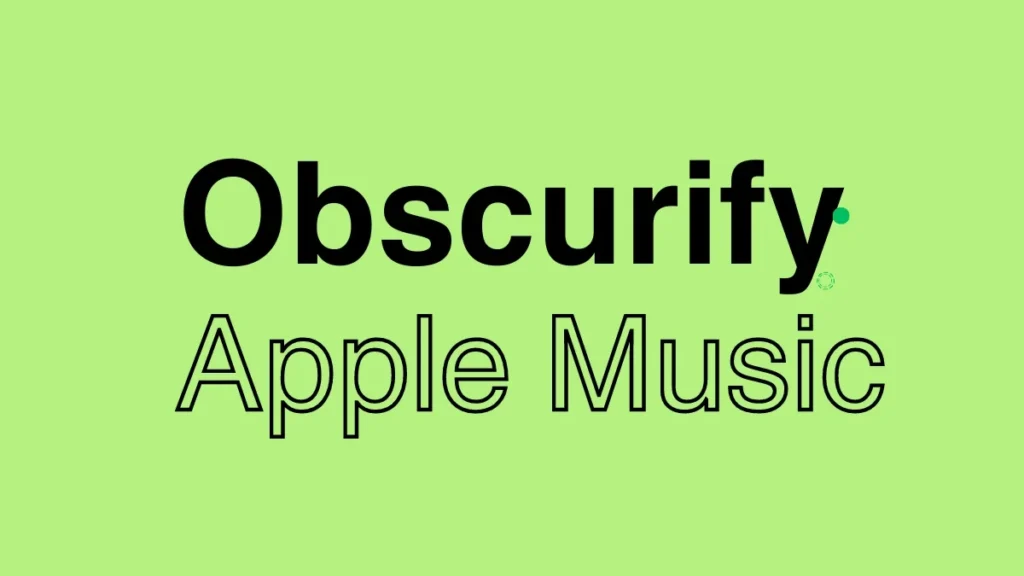Music enthusiasts always want to go further in understanding their preferences. You can use some tools such as Obscurify for Spotify to enjoy finding out how your listening habits are unique. Yet, a lot of users of Apple Music wonder if this app works with their service. We will get into the deep end of Obscurify Apple Music.
Compatibility of Obscurify with Apple Music

As of now, Obscurify does not support Apple Music. This limitation is because of the diverging APIs offered by Spotify and Apple Music.
The API of Spotify provides a plethora of data that services like Obscurify can use for the analysis of music listening habits and to provide detailed insights. The sad part is, that Apple Music’s API does not provide such kind of information such as the popularity of all artists and tracks which is vital for the operation of the app.
Don’t Despair: Alternatives for Apple Music Users
While you won’t get that precise “Obscurity” rating, you still have valuable options to analyze your Apple Music habits:
- Apple Music Replay: This Apple-specific feature provides an excellent year-end (and now year-round) overview. View your top artists, songs, albums, and listening time. Check out customized Replay playlists to relive your favorites. Even though it does not give an obscurity score, it is a beginning for users to consider their listening patterns.
- Last.fm: Scrobble your Apple Music plays using this classic music tracking site. Obtain more detailed statistics, find similar artists, and join a community of people who love music as much as you do.
- Music Discovery Features: Apple Music comes with several music discovery-oriented features. The platform’s playlists, radio shows, and the “For You” section provide new music suggestions, which are based on users’ listening habits and preferences.
- Social Sharing: Although the social features of Apple Music are not as robust as that of Spotify, users are entirely able to share playlists with friends, and view what others are listening to. This can also be a way to find music through social circles.
Conclusion
Those who use Apple Music and want an Obscurify-like experience have rather limited options. The platform’s API limitations do not allow third-parties to deliver as deep analysis as they can with Spotify. Nonetheless, Apple Music’s Replay feature does provide some form of clue as to what users listen to.
The users of Apple Music, who are fanatical about advanced analytics and music discovery, may expect upcoming changes in the service’s API that would allow the implementation of more sophisticated features similar to what the app does for Spotify. By then, they may use the provided tools to overview their listening patterns and find new music.